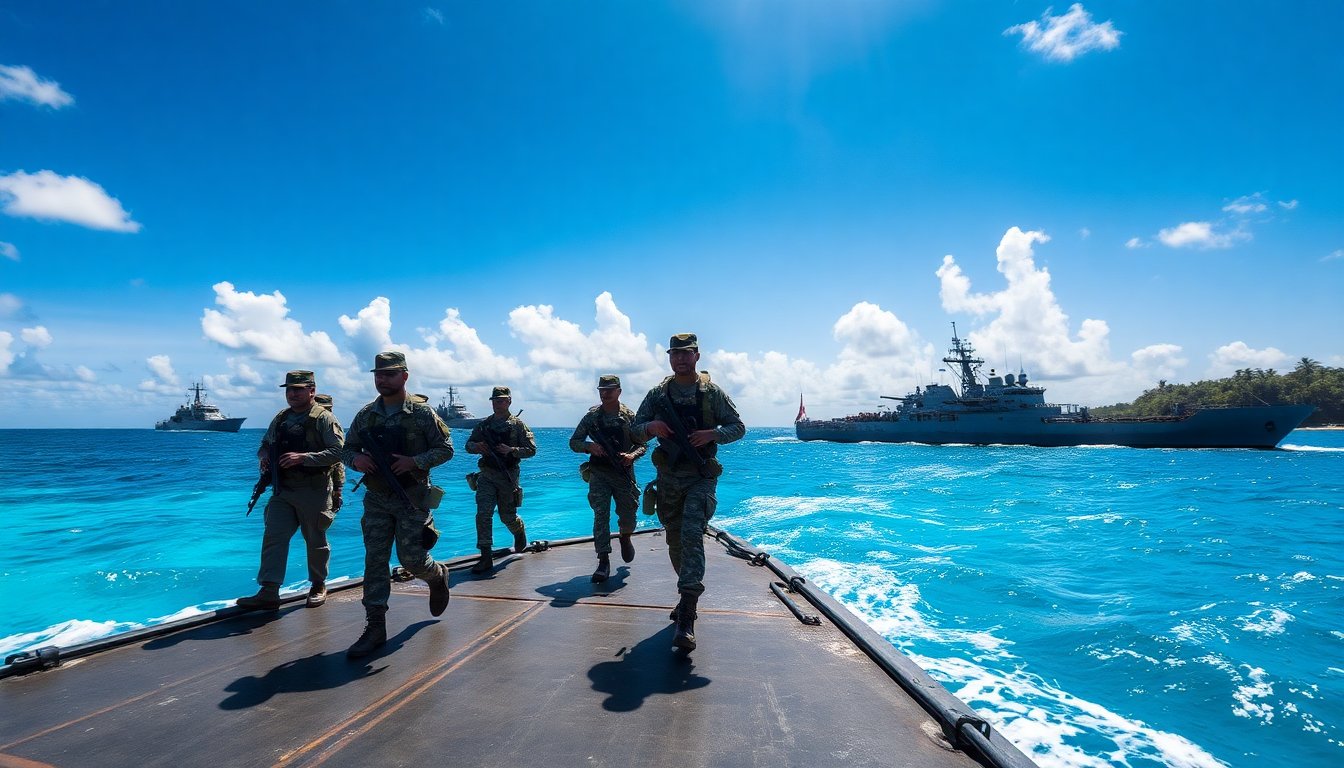Table of Contents
In late August, the United States initiated a significant military buildup in the Caribbean, targeting drug trafficking operations linked to various Latin American cartels. Under President Donald Trump’s direction, this campaign has featured aggressive actions against what are termed narcoterrorists. This strategic shift reflects an escalating commitment to disrupt long-standing drug smuggling routes in the region.
The first strike of this operation took place on September 2, when a U.S. military vessel sank a boat reportedly associated with the Venezuelan gang Tren de Aragua. This incident marked a pivotal moment, resulting in the loss of eleven lives and raising the stakes of U.S. involvement in the region.
Escalation of military presence
Following the initial strike, the U.S. significantly expanded its military presence in the Caribbean, deploying numerous naval assets to support ongoing anti-drug operations. By early November, this deployment represented the most considerable U.S. military concentration in decades, with warships and personnel stationed in and around Puerto Rico.
Strategic objectives
Experts and officials have noted that one primary objective behind this military campaign is to destabilize the Venezuelan regime under Nicolás Maduro. While a full-scale invasion seems unlikely, targeted strikes aim to pressure key figures in the government to relinquish power. The Trump administration has accused Maduro of facilitating drug trafficking operations that threaten U.S. national security.
Historically, the militarization of the war on drugs can be traced back to the late 1980s, when the U.S. began incorporating military resources into drug interdiction strategies. This included establishing the Office of National Drug Control Policy and focusing on collaboration with foreign forces. Today, this approach has evolved into direct military actions against designated terrorist organizations, including notorious drug cartels.
Recent military actions and international reactions
The recent military actions have drawn significant international attention and criticism. Venezuela has responded by mobilizing its own forces, asserting that any attack on its territory would be met with a robust military response. Maduro has threatened to declare a state of emergency, indicating that the situation in the Caribbean could spiral into a larger conflict.
Implications for U.S.-Venezuelan relations
The U.S. military’s strikes have intensified the ongoing conflict with drug cartels and strained diplomatic relations with Venezuela. The U.S. has labeled several Latin American cartels as foreign terrorist organizations, justifying military action under the guise of national security. This designation has raised questions about the legality of such interventions and the potential for further escalation.
As U.S. naval operations continue, the presence of American warships in the region has created a tense atmosphere. Venezuelan fighter jets have engaged in provocative maneuvers around U.S. vessels, leading to increased military readiness on both sides. The potential for miscalculation or unintended conflict remains a significant concern for regional stability.
Future outlook
Looking ahead, the U.S. military’s operations in the Caribbean are likely to persist as drug trafficking remains a critical issue. The Trump administration has indicated a willingness to sustain military pressure on cartel operations, further entrenching the U.S. in Caribbean affairs. As these developments unfold, the international community will closely monitor the situation, particularly regarding human rights and regional security.
The escalation of military involvement in the Caribbean underscores a broader strategy to address the complex challenges posed by drug cartels. As the U.S. navigates this treacherous landscape, the outcomes of these operations will have lasting effects on both domestic and international fronts.


